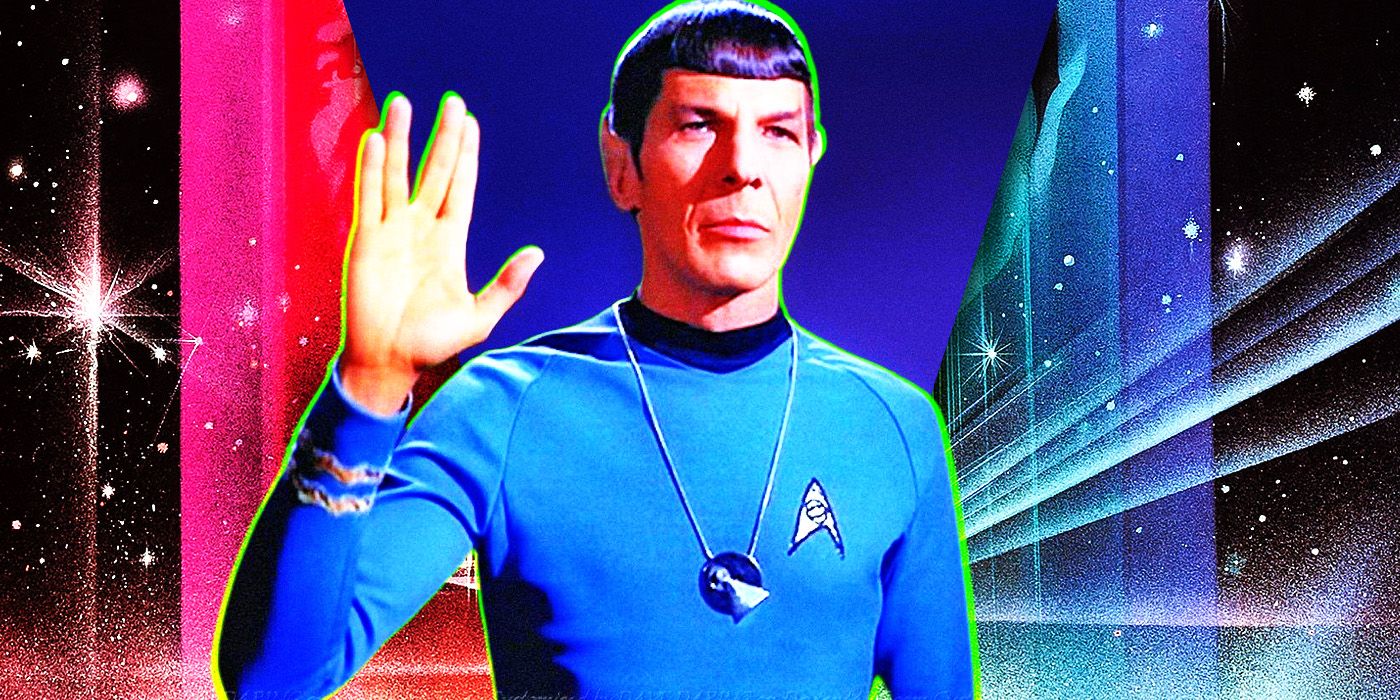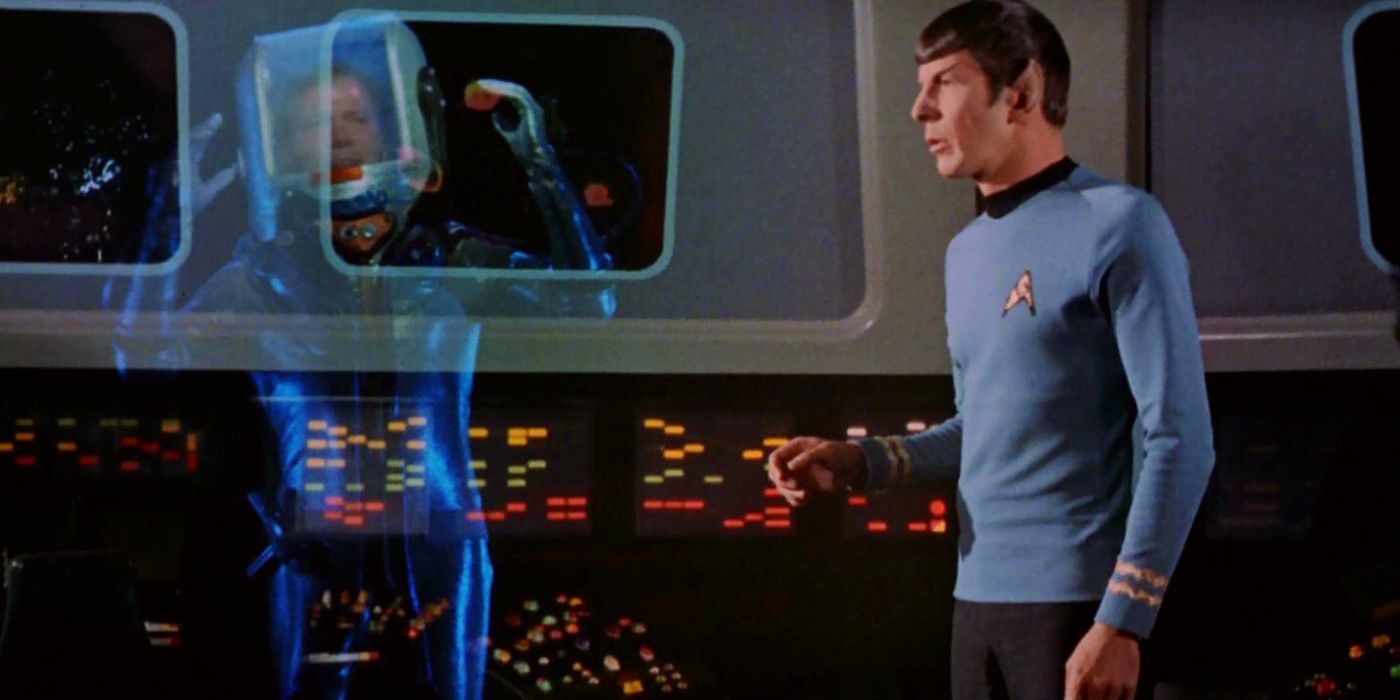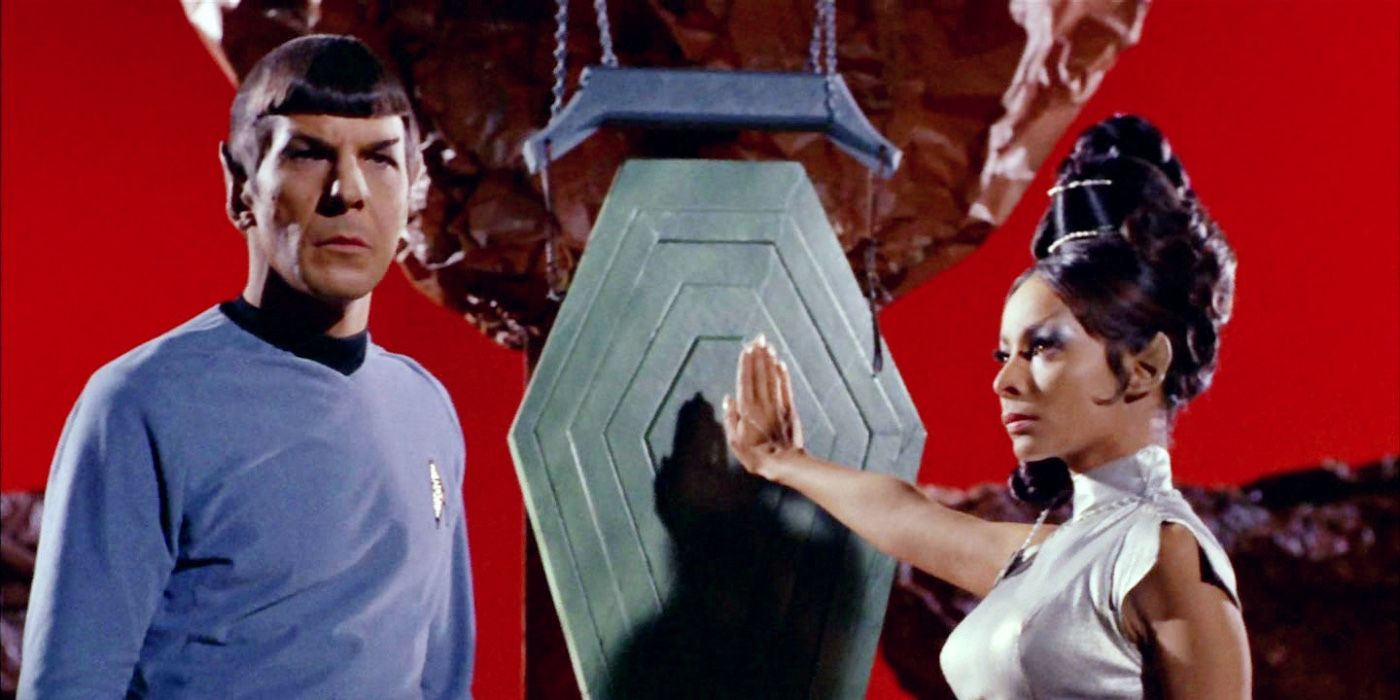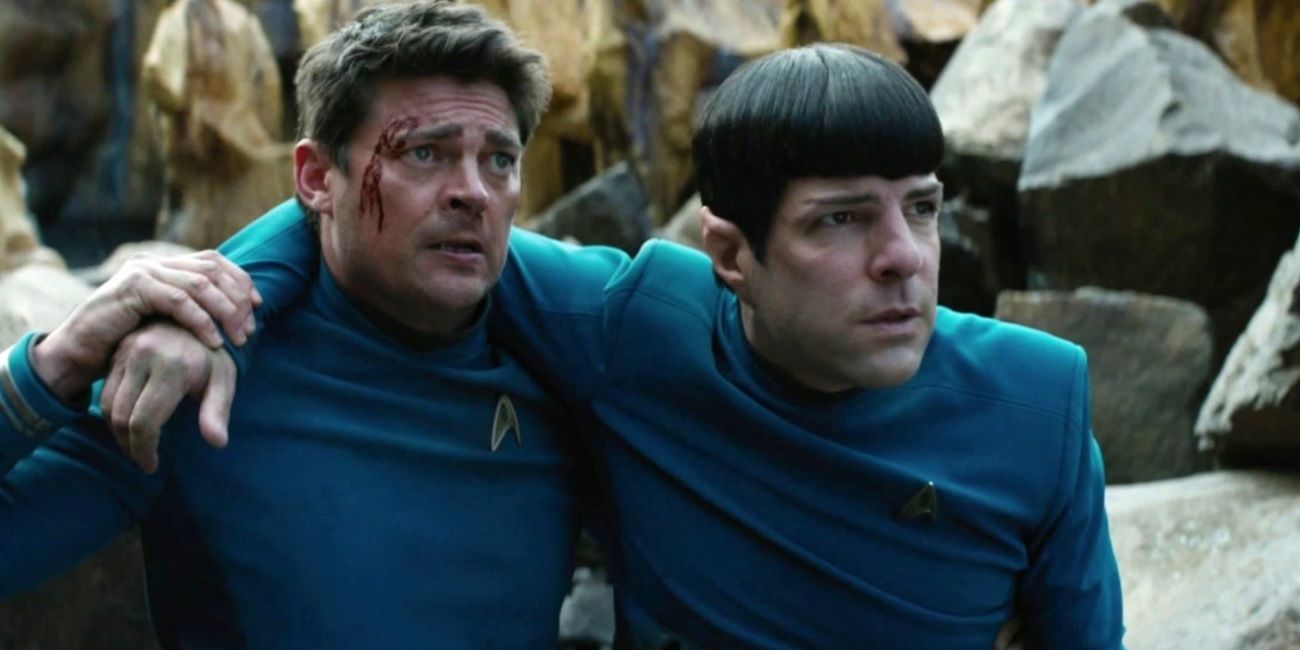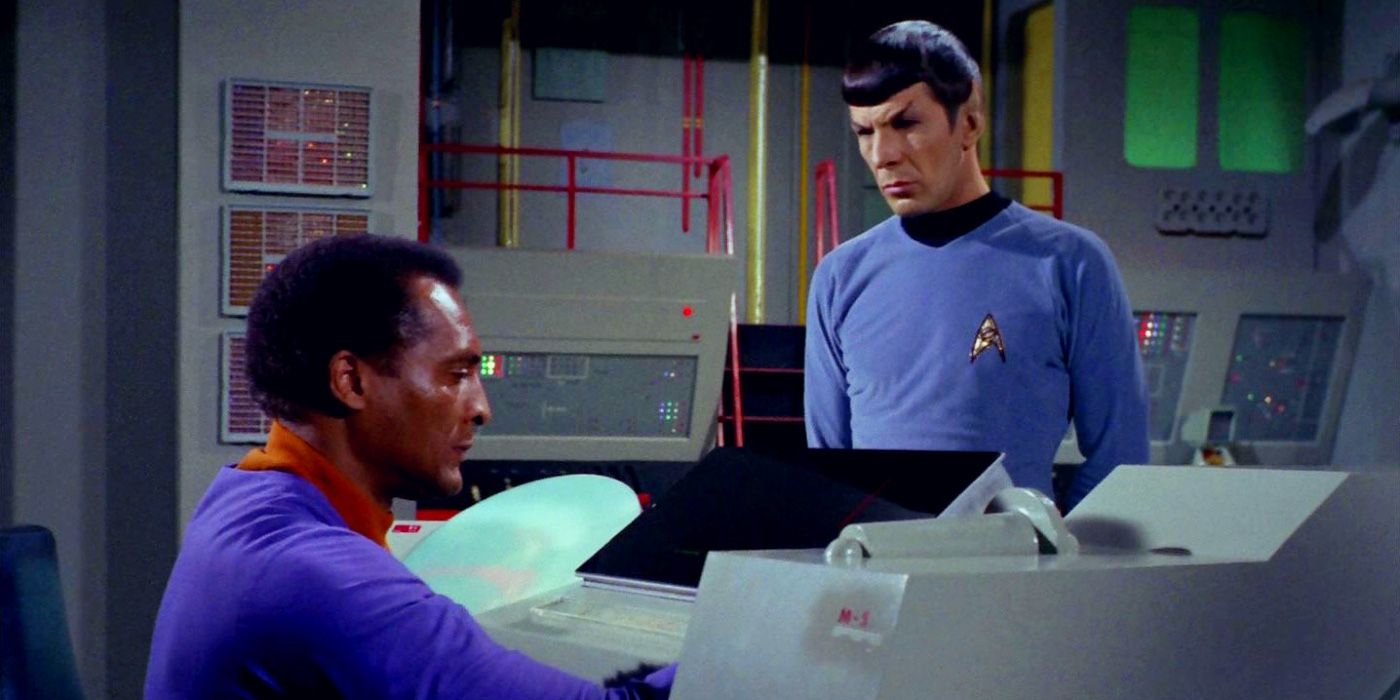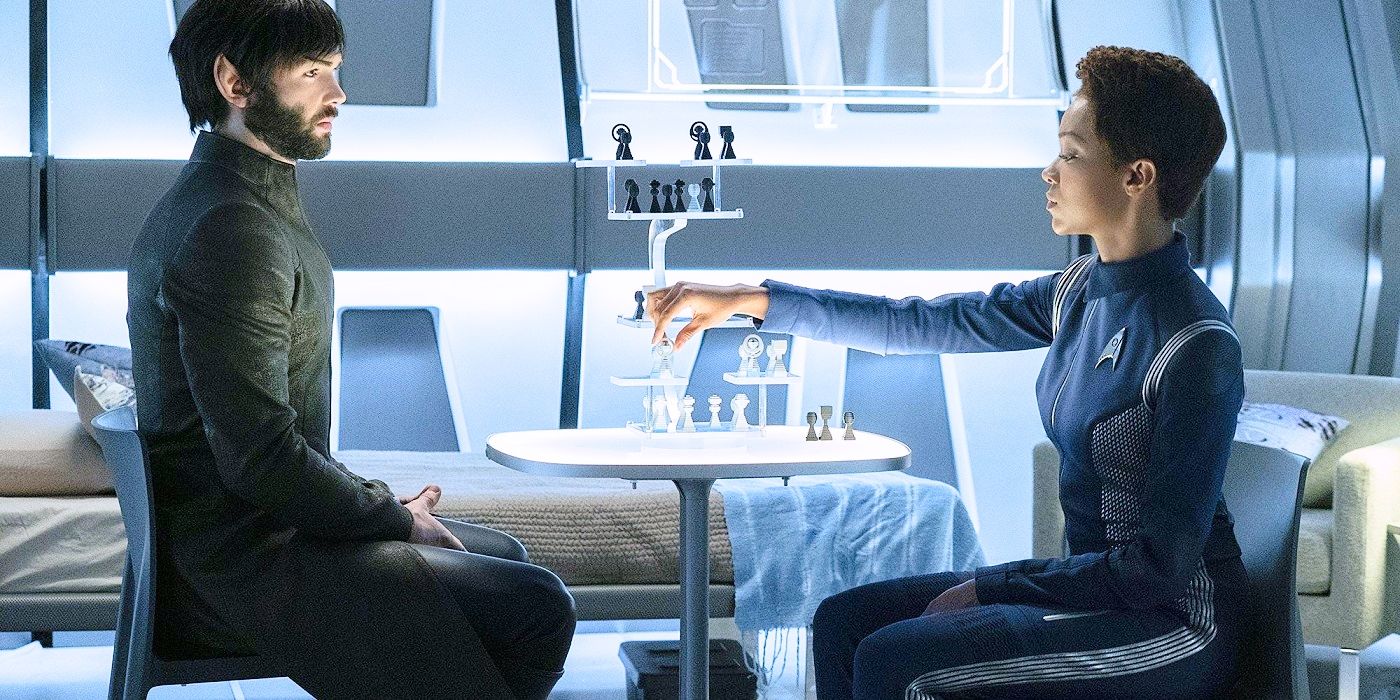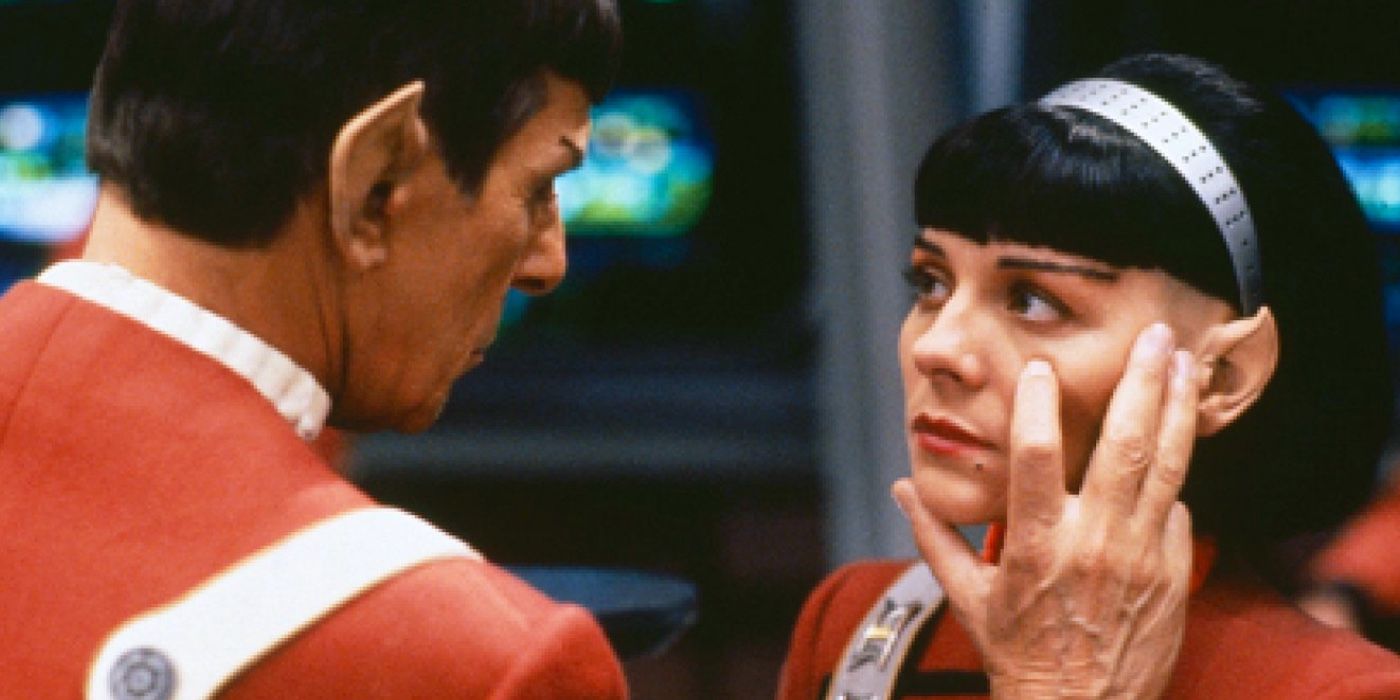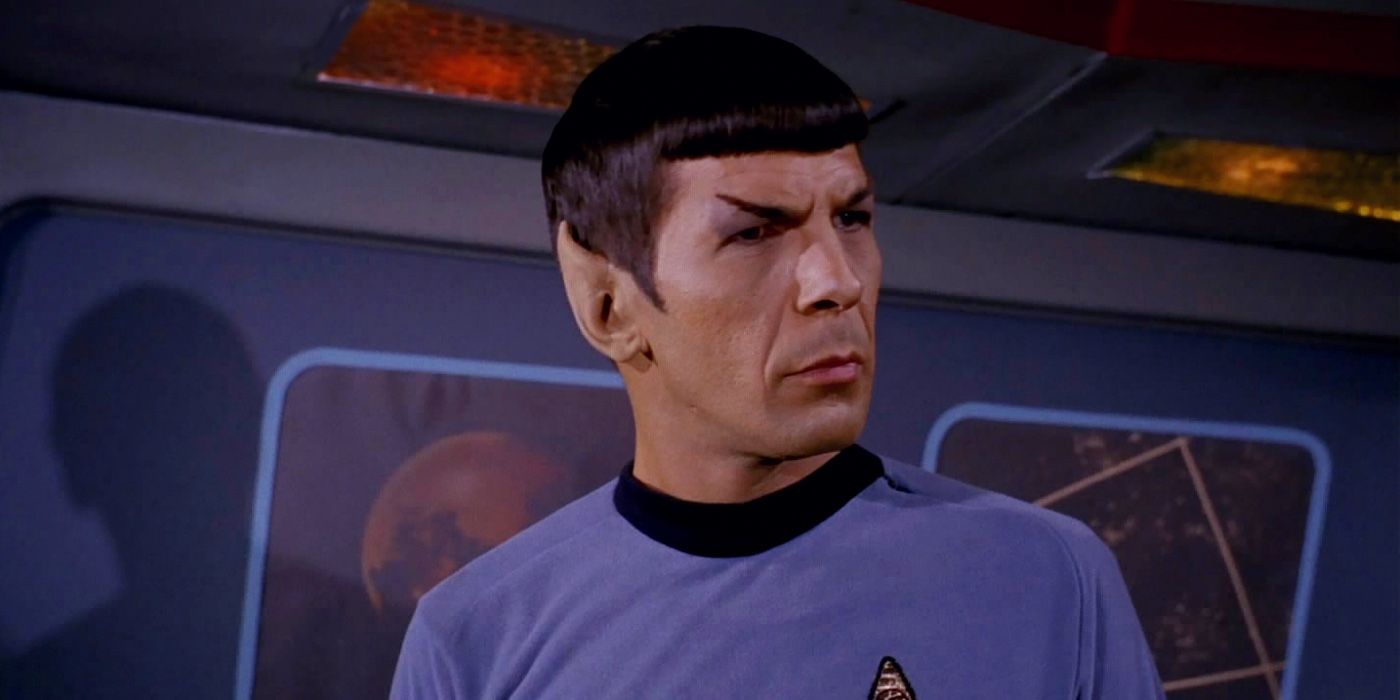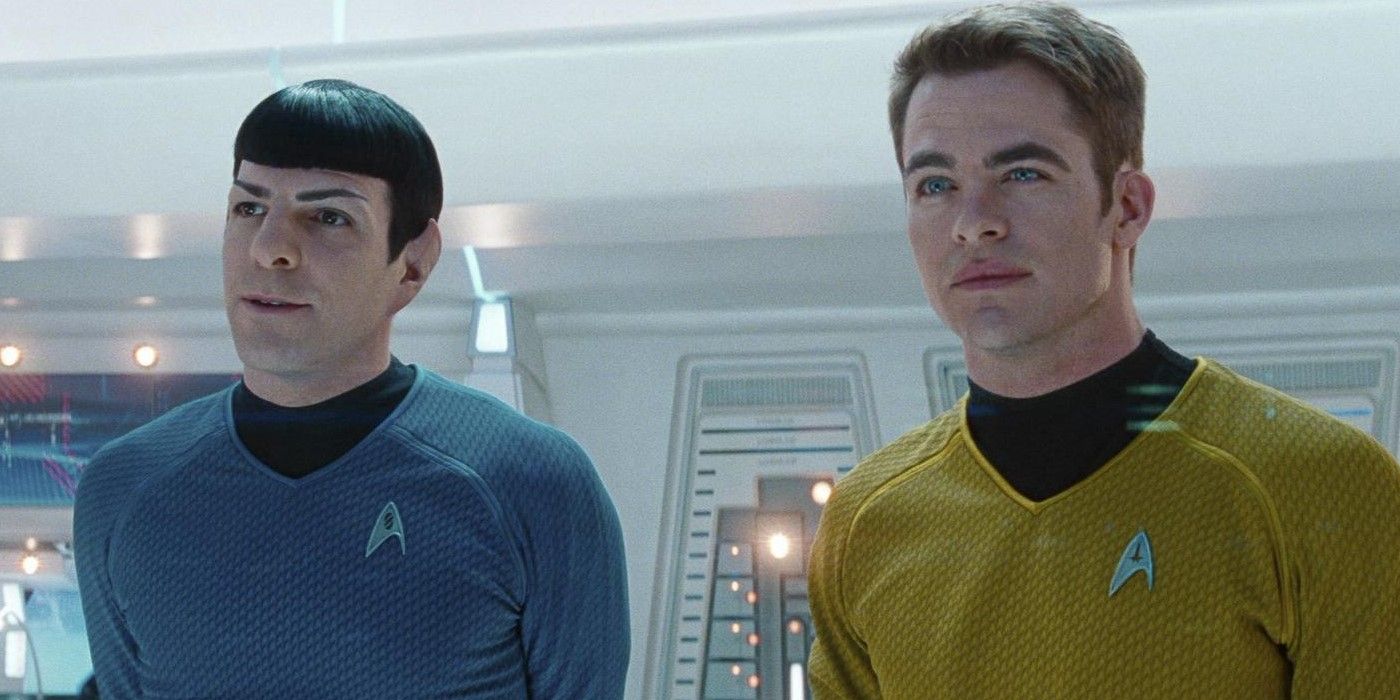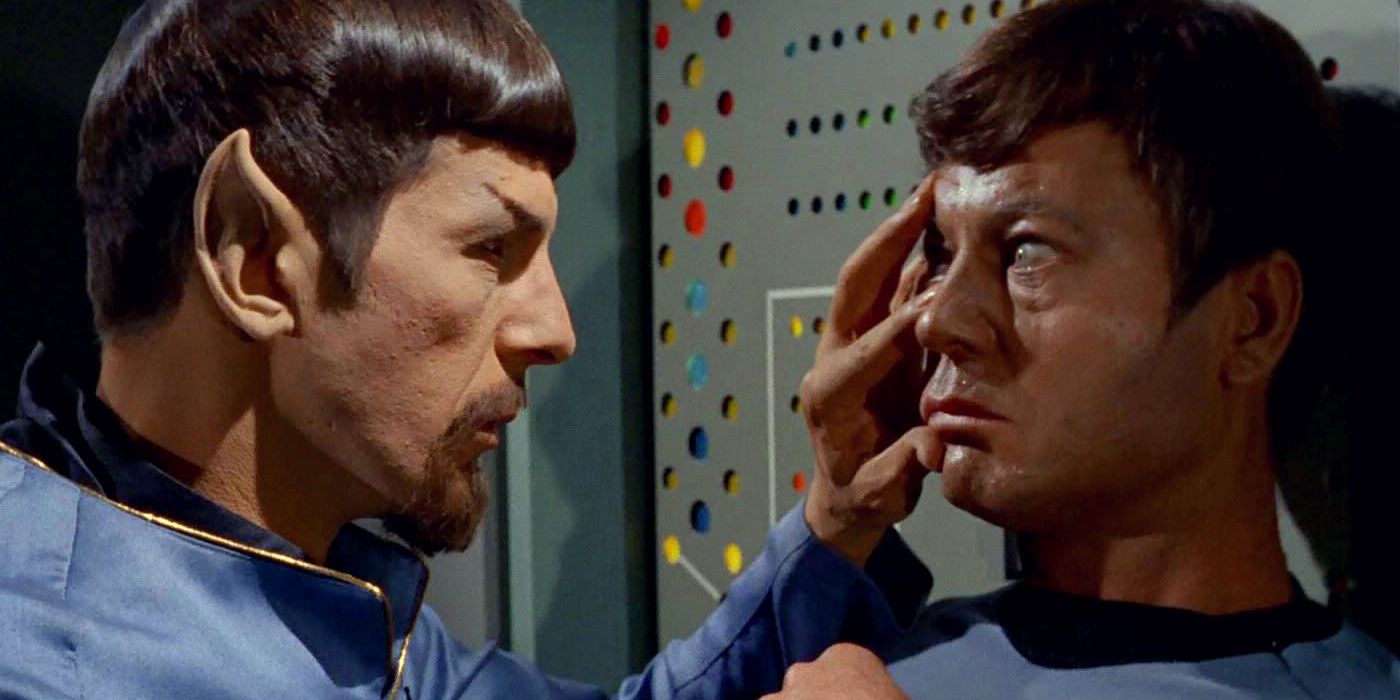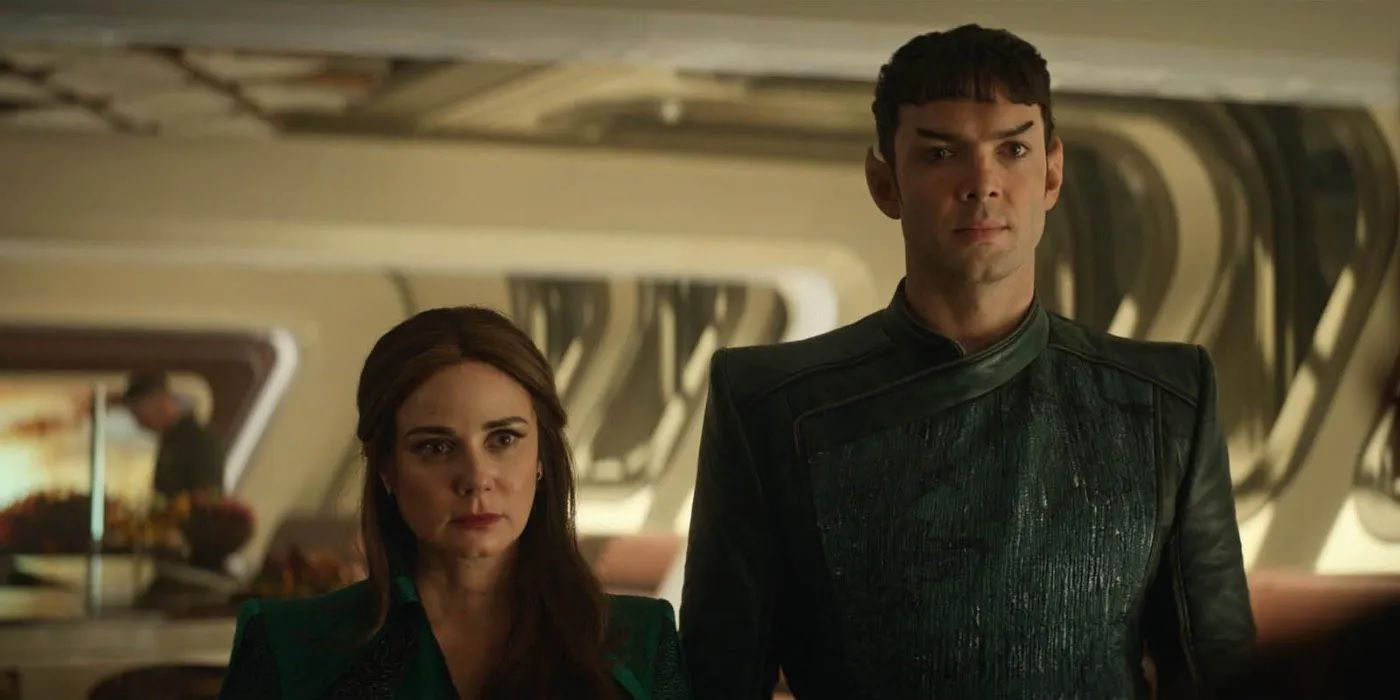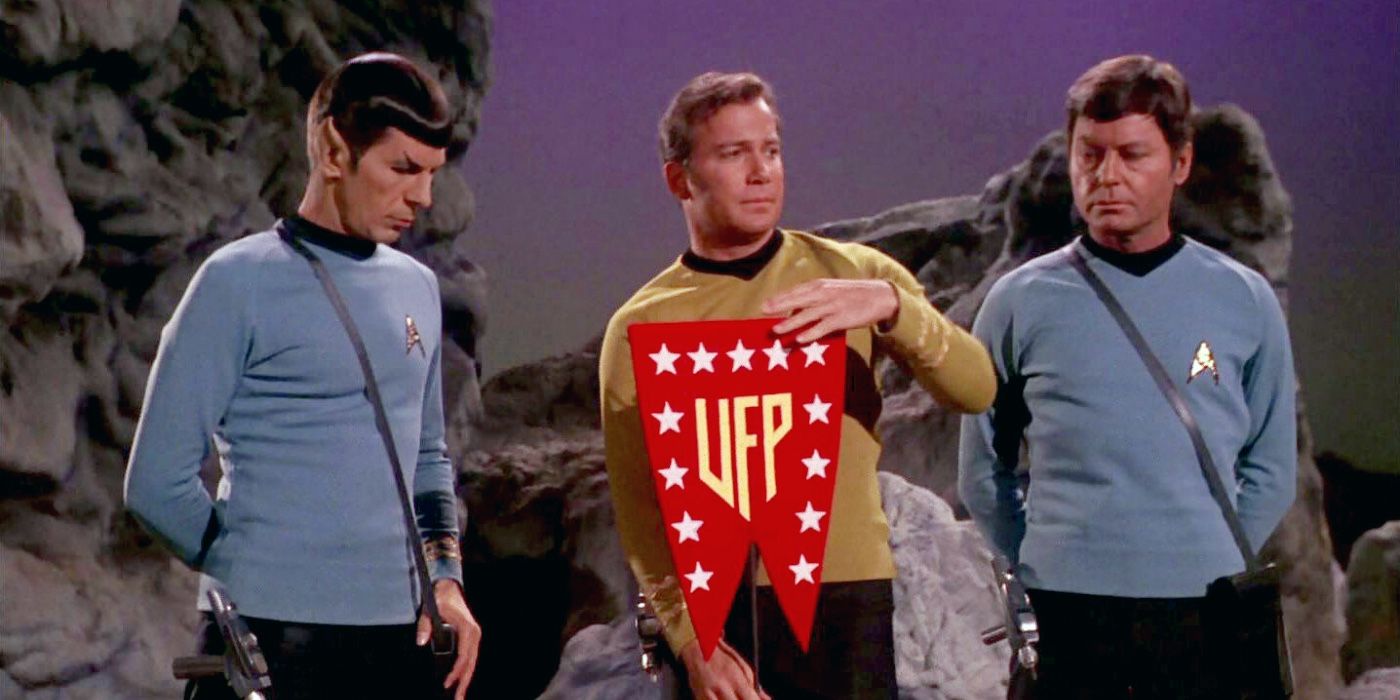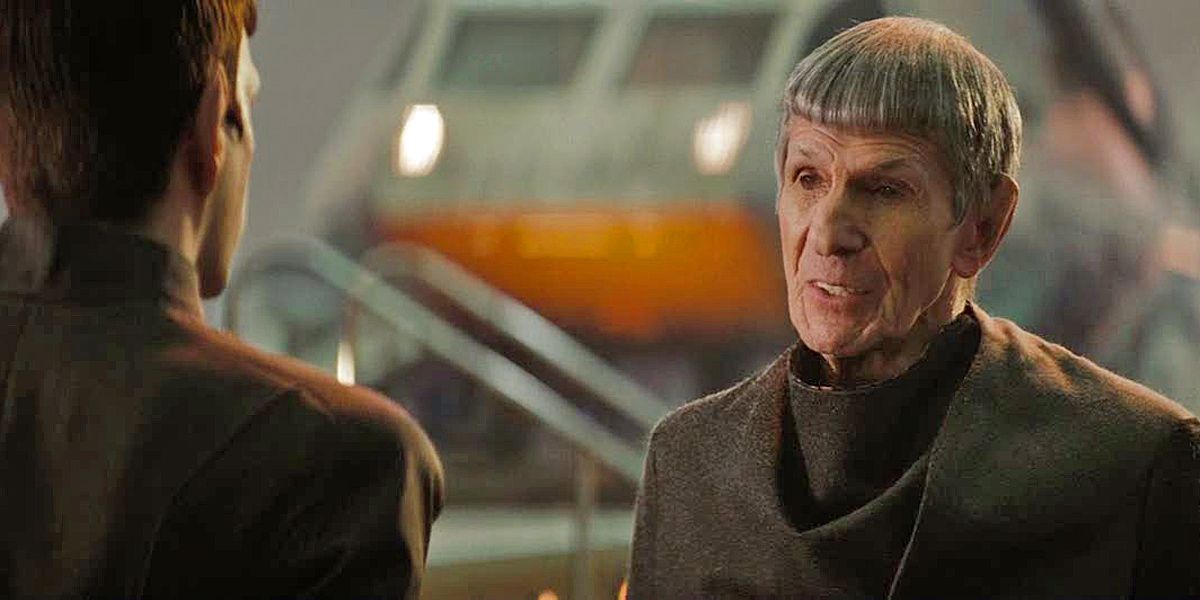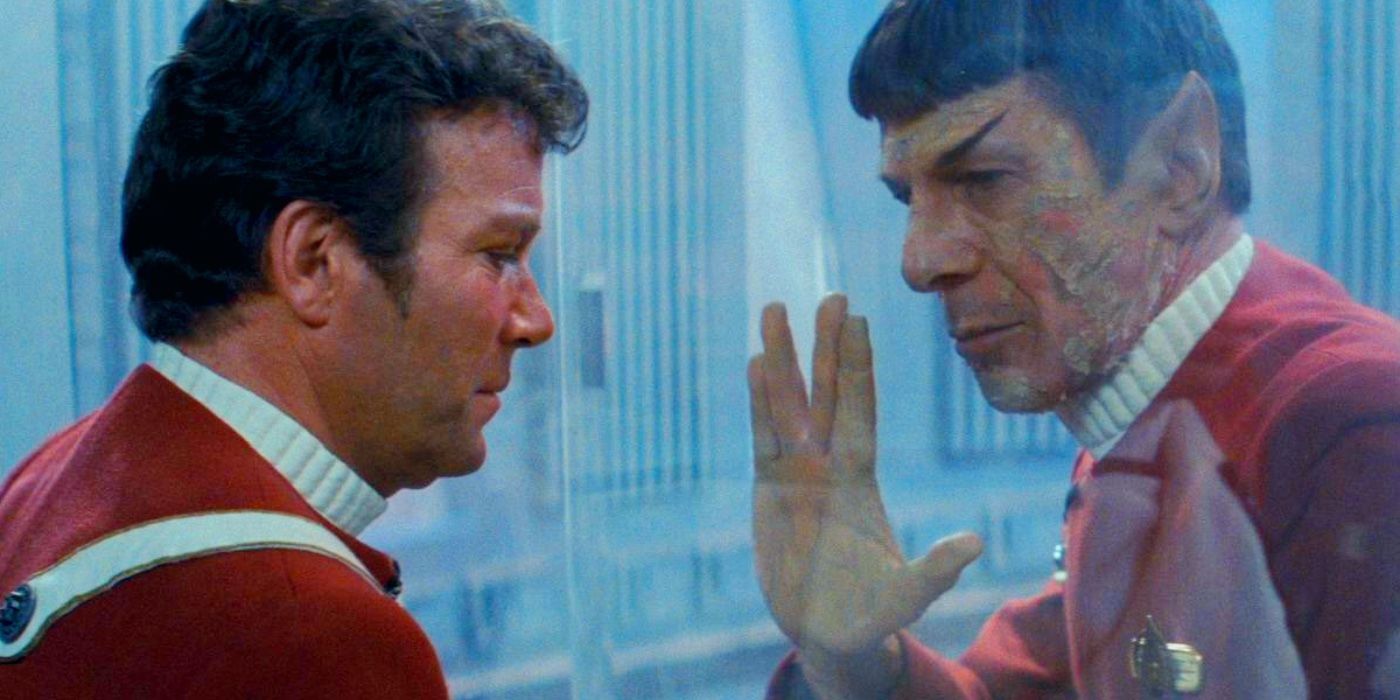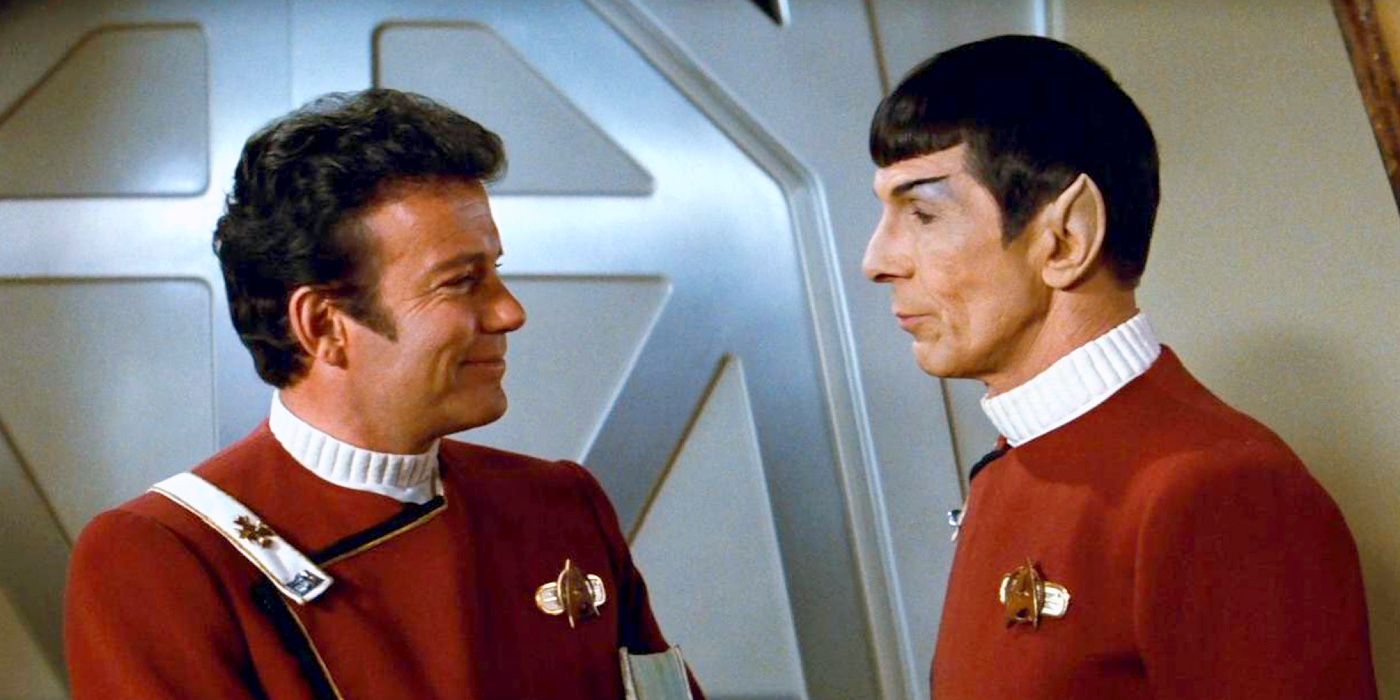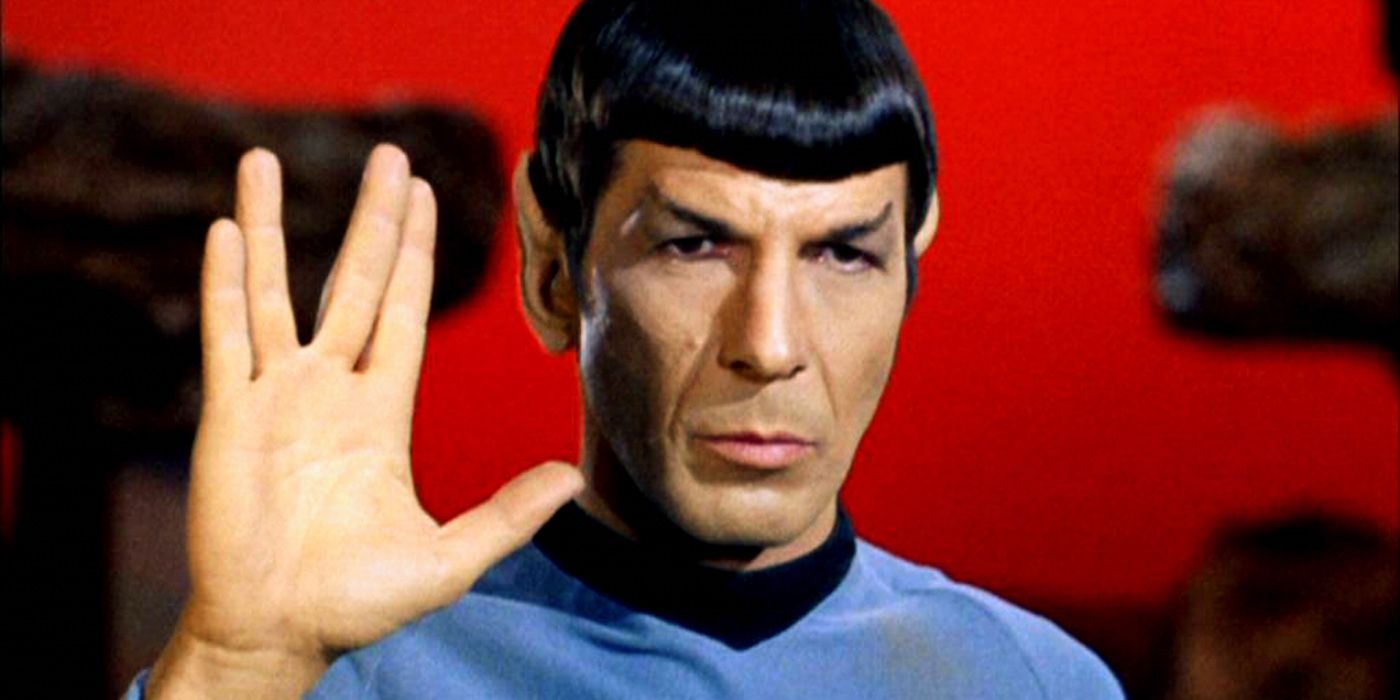When Leonard Nimoy stepped into the shoes of the Enterprise's resident Vulcan First Officer, he created a pop culture icon like no other. Spock, with his unique personality and character design, is perhaps the most recognizable figure from Star Trek. As his story continues in Star Trek: Discovery and Strange New Worlds, it's clear Spock's importance to Star Trek isn't changing soon.
Spock is also known for his highly quotable lines, which range from wise observations about the universe and his scientific research to hilarious quips about his companions and downright sarcastic responses to their excessive humanity. Being half-Vulcan gives him a completely different perspective, and how that aligns with his human side makes him such a beloved character nearly sixty years since his creation.
Updated January 7, 2024 by Joshua M. Patton: Spock wasn't originally Star Trek's central character, though he was the only character (and actor) carried over after the first pilot with the original Christopher Pike and Number One failed. His relationship with Captain James T. Kirk and Doctor Leonard McCoy formed the emotional core of The Original Series. Through his appearances in the movies, Star Trek: The Next Generation and J.J. Abrams' reboot movies, his beloved stature isn't in doubt. So, it's no accident that some of Star Trek's best lessons come from his lips.
15 "Men Sometimes See Exactly What They Wish To See"
Star Trek: The Original Series, Season 3, Episode 9, "The Tholian Web"
In critical moments, men sometimes see exactly what they wish to see.
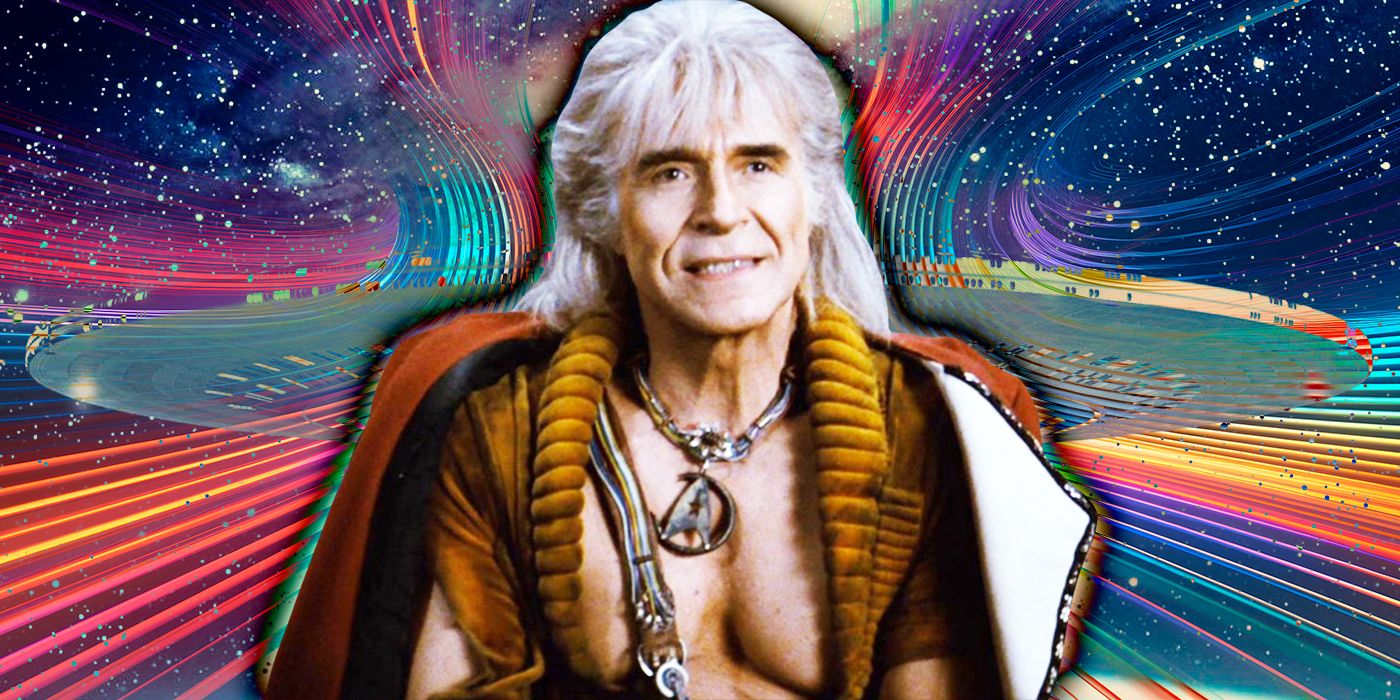
Harve Bennett's Importance to Star Trek, Explained
There are many people responsible for the continued success of Star Trek, but producer Harve Bennett is one of the most important unsung heroes.In "The Tholian Web," Spock finds himself in charge after a mysterious encounter with an unknown alien force leads the crew of the Enterprise to believe that Captain James T. Kirk has slipped into another dimension and is now lost forever. Faced with the dilemma of sacrificing the ship's energy to rescue his friend or proclaiming him dead to maintain the ship's status, Spock deliberates the best course of action while having to deal with increasingly aggressive shipmates.
The episode comes to a head when several crew members claim to have seen strange apparitions of the Captain. While in a conversation with Dr. McCoy where Spock explains that in dire situations such as this one people could turn delusional, Kirk reappears before them. Seeing is believing for Spock, and they're able to rescue him.
14 "Having Is Not So Pleasing, After All, As Wanting"
Star Trek: The Original Series, Season 2, Episode 1, "Amok Time"
After a time, you might find that having is not so pleasing, after all, as wanting. It is not logical, but it is often true.
Perhaps one of — if not the most — well-known episodes in Star Trek, "Amok Time" introduced several details about the Vulcan race to the audience, most notably the existence of pon farr, the Vulcan time of mating. Deeply embarrassed by this predicament, Spock refuses to tell his friend Captain Kirk what's going on. Once Doctor McCoy discovers it is a life or death situation, Kirk diverts the Enterprise from its scheduled trip towards Vulcan against Starfleet orders.
T'Pring decides to challenge their bond by choosing Kirk as her champion, thus forcing Spock and his Captain into a duel to the death. After defeating Kirk and thinking him dead, Spock bitterly tells Stonn that having T'Pring might not be as satisfying as merely desiring her. Upon returning to the Enterprise, Spock surrenders himself for the murder of his friend and captain. However, a quick dose of sci-fi medicine from McCoy makes Kirk only appear to be dead. On seeing him, Spock actually smiles.
13 "Of Course I Care, Leonard"
Star Trek Beyond
Of course, I care, Leonard. I always assumed my respect for you was clear.
The final movie in the rebooted Kelvin Timeline (for now, at least) featured the devastating destruction of the USS Enterprise in the first half-hour of the film. Spock and Doctor McCoy end up crash-landing on a planet together, with Spock near-fatally wounded. He encourages Doctor McCoy to leave him behind, calling it the logical course of action. McCoy responds, "And here I was, thinking you cared."
As much as Kirk and Spock are a big-ticket partnership, McCoy is equally important to him. Their playful rivalry is how Spock shows affection for McCoy. And, for what it's worth, Spock still doesn't come out and say he loves his friend Leonard. McCoy stops him because their love language is picking on each other.
12 "Computers Make Excellent And Efficient Servants"
Star Trek: The Original Series, Season 2, Episode 24, "The Ultimate Computer"
Computers make excellent and efficient servants, but I have no desire to serve under them.
Star Trek canon is replete with references to the "Daystron Institute." The man who gave it its name was Richard Daystrom, the man responsible for the Enterprise's advanced computers. This series constantly has its characters question the value of human life, and "The Ultimate Computer" is not different. An early, prescient story about automation and artificial intelligence, the episode explores the value of the human mind compared to a highly intelligent supercomputer. In advance of battle exercises with two other Federation ships, Spock tells Kirk that having a computer run the Enterprise would be undesirable as the crew is loyal to a person, in this case, Kirk.
As expected, the supercomputer swiftly takes over the Enterprise's systems. Kirk tries to reason with Daystrom, the machine's creator, who snaps at him before Spock applies the Vulcan nerve pinch, rendering him unconscious. Ultimately, Daystrom sees the folly of his ways, but not before the Enterprise killed a number of Federation officers on the other ships while the computer was in control.
11 "We Have Only Now"
Star Trek: Discovery Season 2, Episode 11, "Perpetual Infinity"
Now does matter. What happened before no longer exists. What will happen next has not yet been written. We have only now.
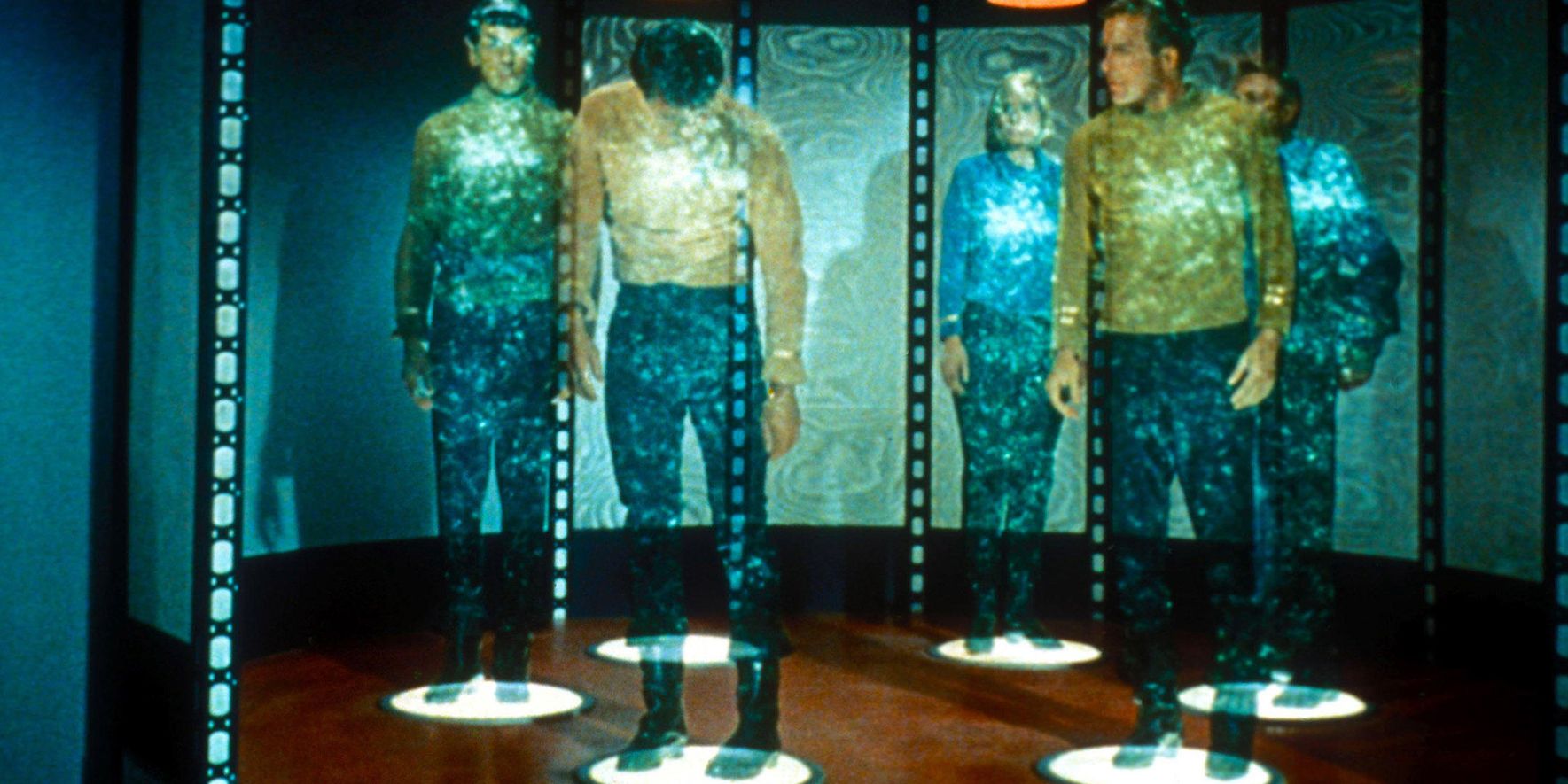
Star Trek's Use of Transporters, Explained
The transporter is one of Star Trek's most magical and powerful creations, but how does the technology work and where did it come from?The first new series in the third wave of the franchise, Star Trek: Discovery, introduced Ethan Peck's Spock as part of its Season 2 storyline. Michael Burnham is Spock's foster sister, raised by Sarek and Amanda Grayson after her parents' death. Once Michael finds out the truth about how her father died and her mother was trapped in a dead future, she almost gave up. Until, at least, her little brother snapped her out of it.
Spock and Michael are presented as having an antagonistic relationship, as most siblings do. Yet, there is some deeper pain there that the show covers. In this moment, Spock is talking about how their baggage with each other and worries about the fear don't matter. Only what they do in the present can save themselves and the galaxy.
10 "Logic Is The Beginning Of Wisdom"
Star Trek VI: The Undiscovered Country
Logic is the beginning of wisdom, not the end of it.
In The Undiscovered Country, the final film featuring the original cast, a space disaster leads to a rare peace offering from the Federation's most iconic villains, the Klingon Empire. Days before retirement, Spock ropes his old crew into this peace mission, but a secret plot is afoot. Chancellor Gorkon, named after Mikhail Gorbachev, is murdered. Kirk and McCoy beam over to their ship to try to save his life but are instead arrested and sent to a prison colony. During this journey, Spock gets to know Valeris, a young Vulcan lieutenant who has recently joined the Enterprise.
Early in the film, the two have a discussion about logic, prompting Spock to sensibly advise that logic should not be the end goal, but rather the starting point of obtaining absolute wisdom. This interaction takes on deeper meaning when Spock discovers Valeris was one of the people who murdered the chancellor. When confronted, she tells him she tried to explain her actions ahead of time. Spock refers back to this quote to say he was also trying to warn her away from her fear of peace with the Klingons.
9 "I Object To Intellect Without Discipline"
Star Trek: The Original Series, Season 1, Episode 17, "The Squire of Gothos"
I object to intellect without discipline, I object to power without constructive purpose.
With Kirk and helmsman Hikaru Sulu trapped by Trelane, a man who calls himself the Squire of Gothos in the episode of the same name, Spock and the rest of the crew do the impossible to bring their crewmates back to safety.
Upon meeting the mischievous Trelane, Spock dismissively protests his petty ways, asserting that he objects to Trelane's intellect and power if there's nothing substantial but fun and games behind them. Trelane seems amused by this, remarking that Spock's human side has made him ill-mannered.
8 "You Are Defensive And, Therefore, Find My Opinion Valid"
Star Trek Into Darkness
Reverting to name-calling suggests that you are defensive and, therefore, find my opinion valid.
Star Trek: The Original Series had 78 episodes and six movies to define the friendship between Kirk and Spock. The Kelvin Timeline movies had just around seven hours to try to establish that bond, and Spock and Kirk are at odds for most of the first film. Star Trek Into Darkness showed they were friendlier, but when Kirk breaks the rules to save Spock, he reports it to Starfleet. Well, he does it inadvertently, but Kirk doesn't see it that way. Frustrated, Kirk shouts that he "won't take ethics lessons from a robot!"
Whatever one might think of how well those movies captured the spirit of The Original Series characters, this is a classic Spock retort. At a moment when any other character would also get angry, he simply plays it cool while still saying something perfectly designed to get under Kirk or McCoy's skin.
7 "They Are In Every Way...The Very Flower Of Humanity"
Star Trek: The Original Series, Season 2, Episode 4, "Mirror, Mirror"
They are brutal, savage, uncivilized, and illogical. They are in every way examples of Homo sapiens, the very flower of humanity.
"Mirror, Mirror" is a fan-favorite episode that expanded the Star Trek universe and acknowledged the existence of parallel dimensions within the storytelling universe. In the episode, Spock deals with Kirk, McCoy, Uhura, and Scotty's barbaric counterparts, capturing them and keeping them from harming the rest of the crew while he tries to figure out how to proceed. Meanwhile, the Prime Timeline versions of these characters have to survive in the murderous Mirror Universe.
Mirror Spock, wearing an iconic "evil" goatee, finds out about what happened by performing a mind meld on McCoy. Still logical and kind, he agrees to send the four universe hoppers back to their dimension. Once back onboard the original Enterprise, Spock ponders over his crewmates' mirror selves and their humanity.
6 "[Love] Is No Handicap, That Is True Strength"
Star Trek: Strange New Worlds, Season 2, Episode 5, "Charades"
You refer to my human side as a handicap. Yet my mother is the most resilient, compassionate, tolerant person I have known. One who has been judged by Vulcans her entire life. And yet she stands by... For love, for family, for me. That is no handicap. That is true strength.
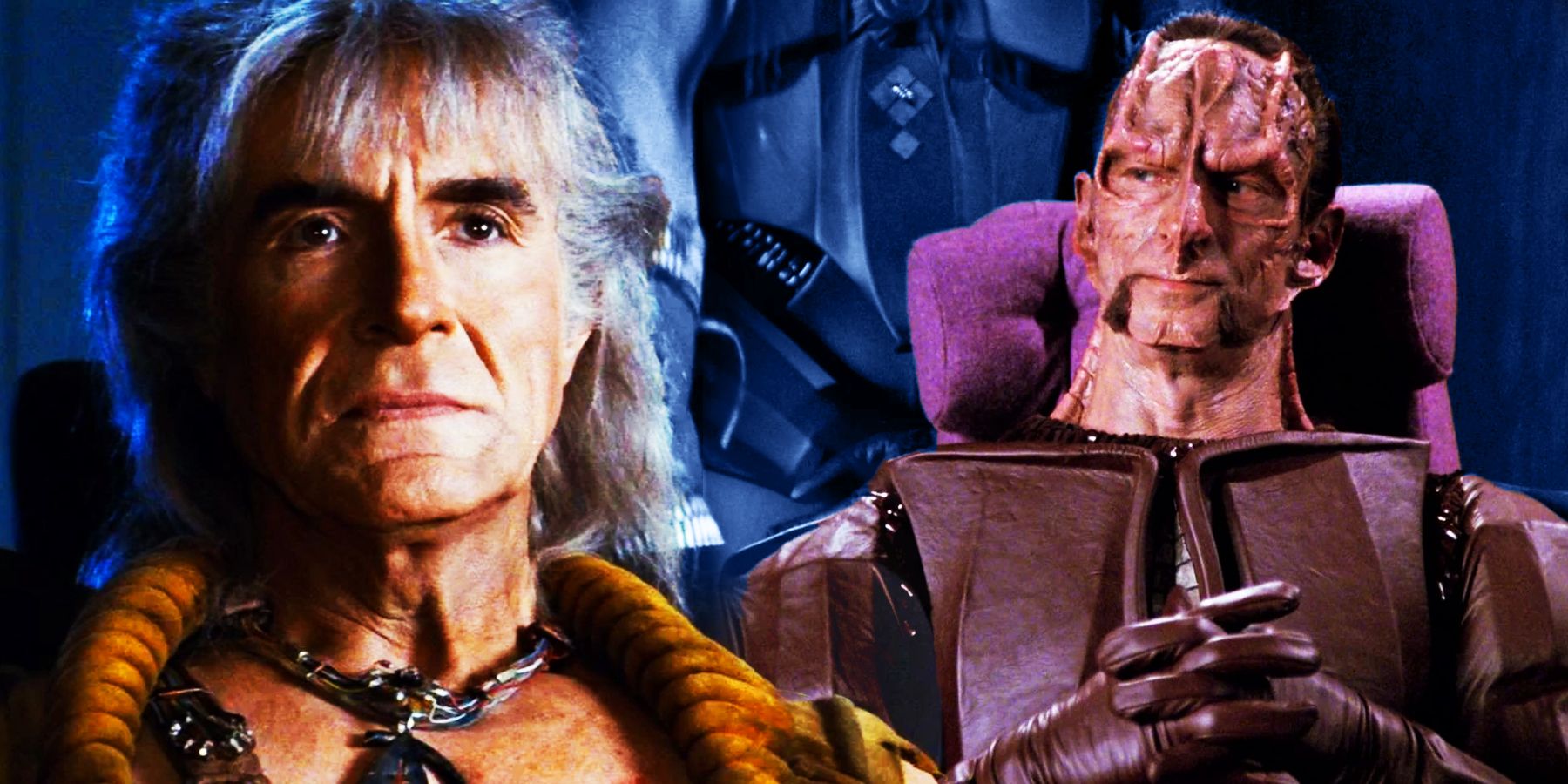
15 Greatest Star Trek Villains Of All Time, Ranked
Just because Star Trek takes place in a mostly idyllic future doesn't mean that its protagonists haven't had to face some menacing foes.In its second mid-season "Spock hijinks" episode, a sci-fi accident leaves Spock purged of his Vulcan DNA just as his fiancée's parents insist on doing a ritual engagement dinner. Amanda Grayson, Spock's mother, teaches him what she knows about being a human living among Vulcans. When T'Pring's mother calls Spock's human ancestry a "handicap" he reveals the titular charade.
Spock often speaks with pride about his Vulcan nature and commitment to logic, yet his human half is equally important. In this episode, Spock made it clear why he respects humanity so much. While their emotions get them into trouble, their capacity to love is what makes it all worth it.
5 "Evil Does Seek To Maintain Power By Suppressing The Truth"
Star Trek: The Original Series, Season 3, Episode 4 "And the Children Shall Lead"
Evil does seek to maintain power by suppressing the truth.
In "And The Children Shall Lead," the crew of the Enterprise is at a loss when a small party beams down to the surface of Triacus. Meant to visit a small Federation outpost, the away team finds all the adults dead from an apparent mass suicide. The only survivors are a group of carefree children who seem completely unaffected by the newcomers and the scattered bodies of their dead relatives.
Upon discovering that the children are being manipulated by an evil spirit named Gorgan, Spock tells McCoy that Gorgan's goal was to keep the truth of what happened hidden in order to maintain control over his young minions, letting his evil power grow at their expense.
4 "A Friendship That Will Define You Both..."
Star Trek
I could not deprive you of the revelation of all that you could accomplish together, of a friendship that will define you both in ways you cannot yet realize.
Star Trek in 2009 gave fans two Spocks for the price of one. Leonard Nimoy reprised the role for the first film and its sequel, his final role. The presence of Prime Spock, as he's called, allows for time-travel changes so that Zachary Quinto can don the ears as the younger version of the character. He meets his older self after Nero, the villain who chased Spock into the past, destroyed the planet Vulcan. Younger Spock asks why the Prime Spock sent James T. Kirk instead of just seeking him out, and this was his answer.
It proves that no matter the universe, Prime Timeline, Kelvin Timeline, or Mirror Universe, James T. Kirk needs Spock at his side if he is going to succeed. Luckily, in every universe but the famously evil one, Spock and Kirk become the kind of friends who save the universe together.
3 "I Have Been And Always Shall Be Your Friend"
Star Trek II: The Wrath of Khan
I have been and always shall be your friend.
Star Trek II: Wrath Of Khan is beloved for not only bringing back the best Star Trek villain and giving him the screentime he deserved but also for being a love letter to Kirk and Spock's extraordinary friendship. The series always had them at the center of every narrative, positioning them as the heart and mind of the Enterprise and making their relationship an essential part of their adventures.
Spock's death at the end of the movie is one of the most significant events in Star Trek lore, showing Spock's most vulnerable human side as he deliriously expresses the importance of their friendship to Kirk in his last moments. Sure, he came back in the next movie, but it doesn't undercut the impact of this scene in the slightest.
2 "The Needs Of The Many Outweigh The Needs Of The Few"
Star Trek II: The Wrath of Khan
The needs of the many outweigh the needs of the few. Or the one.
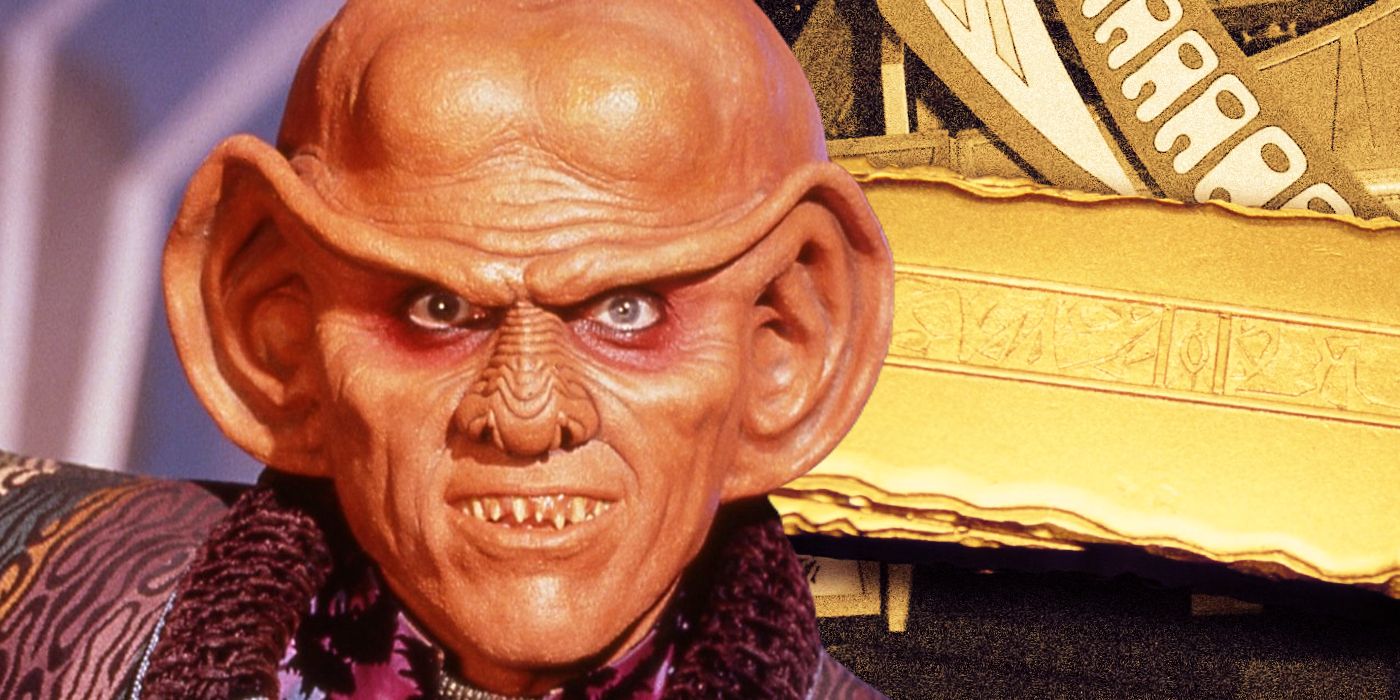
The Star Trek Economy From Latinum to Federation Credits, Explained
Of all the science fiction on Star Trek, perhaps the most confusing element of it's utopian future is the economy, from Federation credits to latinum.In the first part of Wrath Of Khan, when discussing who should lead their new mission, Kirk and Spock have a conversation about Kirk's recent promotion to admiral. Spock remarks that he thinks it's a mistake, as being a captain is Kirk's first and foremost destiny, and supports his claim by invoking that the needs of the many, in this case, the Enterprise's crew, outweigh the needs of the few.
Tragically, this line is later reprised during Spock's sacrifice, with Kirk saying the words with a dying Spock, who slowly falls victim to the radiation inside the engine room. This scene was played with the characters reversed in Star Trek Into Darkness, which also featured Khan.
1 "Live Long And Prosper"
Star Trek: The Original Series, Season 2, Episode 1 "Amok Time," et al.
Peace and long life. Live long and prosper.
A phrase so well-known that it has entered mainstream media, "live long and prosper" and its accompanying hand gesture were first introduced in season two of Star Trek during Spock's rushed visit to his home planet in "Amok Time." Spock and T'Pau, a highly regarded Vulcan diplomat who would be officiating Spock and T'Pring's ceremony, greet each other using the phrase upon their first meeting.
The salute is as intrinsic to Star Trek as Spock himself and has made an appearance in every Star Trek film and show except Deep Space Nine. Despite the many other characters who have also uttered the phrase, Leonard Nimoy's rendition is by far the most cherished by Trekkies.

